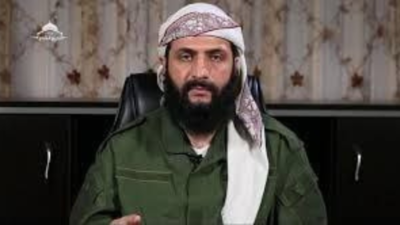
In Syria’s war-stricken complex landscape, Abu Mohammed al-Jolani, the leader of Hay’at Tahrir al-Sham (HTS), has become one of the most controversial figures.
Although Jolani has sought to rebrand himself and HTS as pragmatic actors in the opposition against the Assad regime, his past connections to al-Qaeda and the Nusra Front cast a long shadow.
Recent developments in Syria have brought renewed attention to Jolani’s role, but it was in 2017 that the United States firmly labelled him a terrorist.
Firm stance from the United States
In 2017, the US government used the official Twitter handle of its Embassy in Syria to portray its stance on Jolani and HTS. Through a series of tweets, the US clarified that HTS was essentially an extension of al-Qaeda in Syria, despite attempts at rebranding.
One tweet read, “The core of HTS is Nusra, a designated terrorist organisation. This designation applies regardless of what name it uses or what groups merge into it.”
The Embassy account highlighted that HTS’s formation was not a step toward moderation but rather a calculated move to obscure its extremist roots. Another tweet stated, “HTS is a merger and any group that merges into it becomes part of al-Qaeda’s Syrian network.”
These tweets were accompanied by a press release that lambasted HTS’s deceptive practices.
The release stated that the group’s core aim was to “hijack the Syrian revolution,” with Jolani at its helm. It described him as the operational controller of HTS, whose approach was “volatility,” a reflection of al-Qaeda’s goals masked under a facade of moderation.
Shadow of Jolani’s leadership
The US Embassy in Syria’s communications painted Jolani as a central figure in HTS’s operations and ideology. While HTS sought to portray itself as a protector of Syria’s revolutionary aims, the US accused Jolani and his allies of undermining these goals for their gain.
A tweet declared, “We remain committed to bringing leading AQS (al-Qaeda in Syria) figures in HTS to justice.”
A poster shared by the Embassy explicitly named Jolani as a terrorist and reiterated his allegiance to al-Qaeda. The tweets stressed that HTS’s leadership, despite its rhetoric, remained loyal to al-Qaeda’s strategies, further delegitimising its claims of reform.
The US’s reluctance to designate HTS earlier was tied to its complex alliances. One significant factor was HTS’s absorption of the Nour ed-Dine Zenki Brigade, a group that had previously received US weapons and training.
This connection raised questions about the implications of officially recognising HTS as a terrorist entity, given the Zenki Brigade’s troubling history, including documented war crimes.
This hesitance reflected broader concerns about acknowledging the US’s role in indirectly empowering extremist factions in Syria. It also underscored how political considerations often influence the designation of groups as terrorist organisations.
The 2017 declaration by the US Embassy in Syria remains a defining moment in how the international community perceives Jolani and HTS.
While HTS has continued efforts to distance itself from its al-Qaeda roots, the accusations levelled by the US cast a long shadow over its legitimacy.






